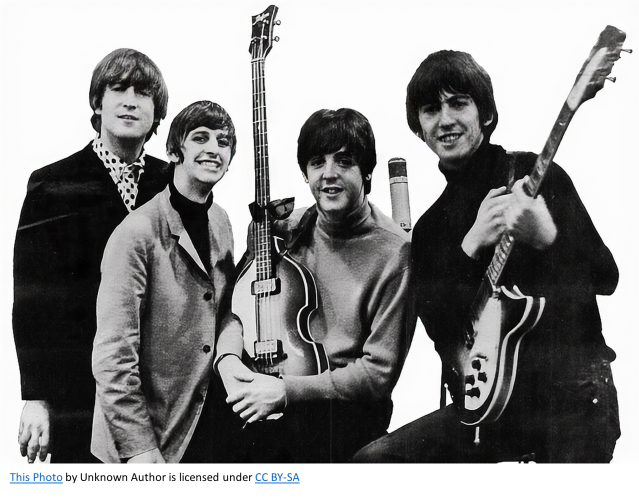Sport and Competition
Learn What We Control and Don't Control in Sports
How athletes can thrive despite unavoidable external and internal distractions.
Posted February 2, 2024 Reviewed by Monica Vilhauer
Key points
- Controlling the controllable and letting go of the rest is critical for athletic success.
- Actions, concentration, and effort (A.C.E.) are the only things within the athlete's control.
- Dwelling on or trying to control thoughts, emotions, memories, and physical discomfort intensifies them.
"Control the controllables."
A familiar adage in the competitive sports world. It’s a term coined by a person not associated with sports, but who knew a few things about adverse circumstances a little more challenging than athletics. His name is Viktor Frankl, a famed Austrian psychiatrist who survived three gruesome years in Nazi concentration camps during World War II.
“Forces beyond your control can take away everything you possess except one thing, your freedom to choose how you will respond to the situation,” Frankl elaborated in his celebrated book, “Man’s Search for Meaning.” It's a work that reflects on his years in concentration camp captivity and is required reading at many educational institutions.

Epictetus, an ancient Greek Stoic philosopher born into slavery, circa 50 A.D., also reflected on what we can and can't control in life, having also lived under difficult circumstances. Here’s what he had to say:
“Some things are in our control and others are not. Things in our control are opinion, pursuit, desire, aversion, and in a word, whatever are our own actions. Things not in our control are body, property, reputation, command, and whatever is not our actions. The things in our control are by nature free, unhindered, and unobstructed, while those not in our control are weak, slavish, can be hindered, and are not our own.”
Combining the wisdom of Frankl and Epictetus, take charge of the controllable. As for the uncontrollable, listen to The Beatles and "let it be.”
All this has enormous implications in sports, other performance endeavors, and life.
Let’s investigate.
What Do Athletes Control?
Not much, and neither do the rest of us.
Let's begin by identifying things athletes do not control.
Weather conditions, officiating decisions, injuries, teammates, opponents, and past events are all things beyond our circle of influence. According to Acceptance and Commitment Training (ACT) and Contextual Behavioral Science—an approach exerting growing impact on the practice of sport psychology—athletes also do not control their thoughts, emotions, and internal physiological experiences (tiredness, muscle soreness, etc.).
That inside stuff can be very disturbing and uncomfortable. It can also disrupt optimal performance, and we have very limited ability to control those inner experiences.
Dwelling on things outside our control exponentially intensifies frustration, annoyance, and anxiety. Especially daunting is rumination on the internal experience—emotion, thoughts, physical pain, tiredness, etc.
Encountering the uncontrollable is minimally problematic when the athlete accepts it as an inevitable part of the sports experience. The willingness to allow for the uncontrollable, and a focus on the job, enables sports participants to perform the committed actions necessary for optimal performance.
When it comes to the inside stuff, dwelling on it, or trying to make it go away, serves to increase focus on them, thus, causing disturbing thoughts, emotions, physical pain, tiredness, etc. to worsen.
What, then, is controllable for athletes and other humans? Just three things: Our Actions, Concentration, and Effort (A.C.E.). Take charge of that, and you’ll “ace” your sports performance.
Acing Performance
Consider the stressful experience of a heart or brain surgeon, perhaps the penultimate examples of jobs demanding uber-focus and extraordinary, exacting skill.
Now, imagine you're that surgeon amid a five-hour surgical procedure, mentally and physically exhausted, with someone's life and death hinging on every decision and move you make. Suddenly, your mind floods with memories and emotions revolving around a patient who died on your operating table the previous day. Then, without warning something goes terribly wrong during the current surgery.
For a healthy dose of perspective taking, compare all that to a lost game, an unwelcome officiating call, or a missed putt, which athletes stress over.
What would you want your surgeon to do if you were the patient discussed above when something goes awry? Would you want them to dwell on the patient that died yesterday, throw their surgical tools on the floor in frustration, curl up into a fetal position feeling sorry for themself, or run out of the operating room seeking relief from the situation?
Sounds like the behavior often observed in today's sports world. Athletes obsessing and pouting over their lack of playing time, yesterday's poor performance, throwing equipment, or slouched on the bench after a failed effort.
Maybe concentrating on the necessary actions for the surgery would be the more successful approach you'd want from your doctor. Sticking with the controllables during a sports performance works the same magic, preventing the intrusive thoughts emotions, and memories from pirating correct focus.
Critical to effective performance, be it in the surgery room, on the soccer pitch, or on the basketball court, is the ability to put all your concentration and effort into the actions that need to be taken now—A.C.E. There is no time to fuss or dwell on things other than those controllables. Surgery and athletics demand immediate concentration and effort on taking effective actions, and the ability to do so will determine ultimate success.
There is a time space between when something happens on the field of play and how the performer responds to it. Those few seconds afford you the opportunity to choose to respond effectively with "reasoned choice," as the ancient Stoics called it. That space can be of excruciatingly short duration for a surgeon or an athlete.
Whether attending to a sudden cardiac arrest or a 100-mph fastball, the surgeon or baseball hitter doesn't get much time to decide what to do. Both situations are difficult enough when totally focused. Dwelling on emotions, thoughts, and memories only distracts and disrupts a person from taking the correct action. Notice those things, acknowledge them... and then pivot to the task at hand
The Bottom Line
Unwanted, unpleasant, and distracting thoughts, emotions, and memories are an unavoidable element of the sports experience. Unfortunately, human minds are not equipped with a delete button. When engaged in surgery, athletic competition, and everything else we do, that internal stuff is likely to show up.
We can’t make those internal experiences go away, and dwelling on them, or trying to delete them, doesn’t work and usually intensifies them. Instead, learn to accept those uncontrollable things as part of the sporting experience, be willing to have them, and commit to what needs to be done, now, for optimal performance.
The game will move on with or without you. Stop getting pushed off the game train by the uncontrollable and stay on track with the Actions, Concentration, and Effort you control and that will get you to your desired destination.

What to do with that distracting, inside stuff? Repeating the Beatles advice, “Let it be.”




